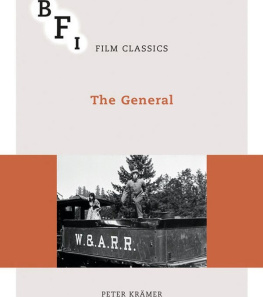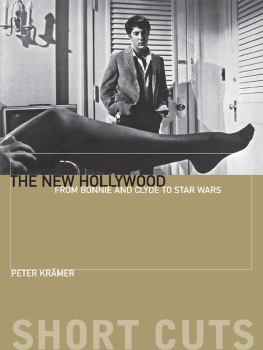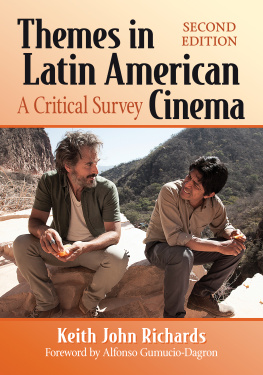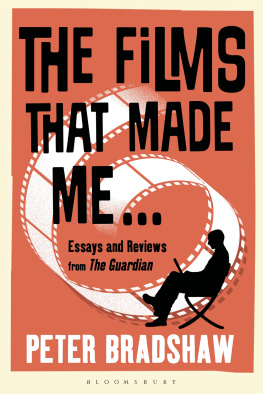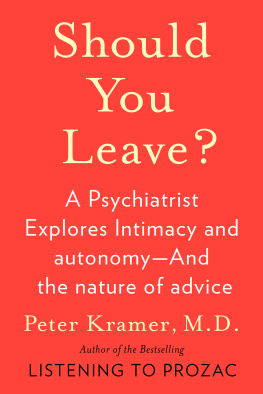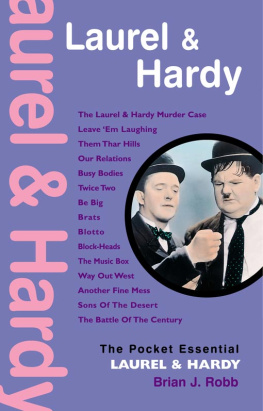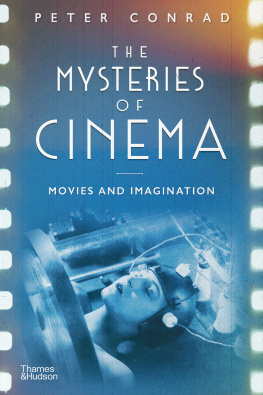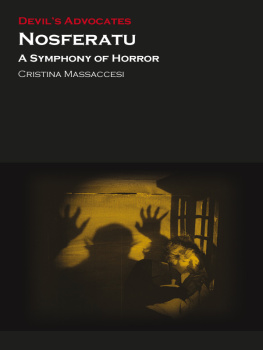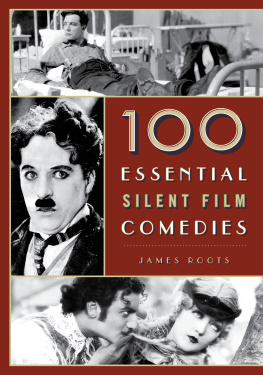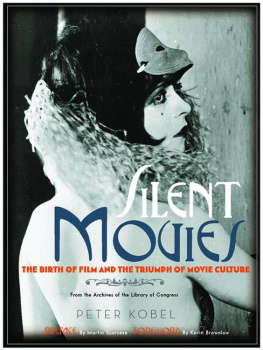BFI Film Classics
The BFI Film Classics is a series of books that introduces, interprets and celebrates landmarks of world cinema. Each volume offers an argument for the films classic status, together with discussion of its production and reception history, its place within a genre or national cinema, an account of its technical and aesthetic importance, and in many cases, the authors personal response to the film.
For a full list of titles available in the series, please visit our website: www.palgrave.com/bfi
Magnificently concentrated examples of flowing freeform critical poetry. Uncut
A formidable body of work collectively generating some fascinating insights into the evolution of cinema.
Times Higher Education Supplement
The series is a landmark in film criticism.
Quarterly Review of Film and Video
Possibly the most bountiful book series in the history of film criticism.
Jonathan Rosenbaum, Film Comment
Editorial Advisory Board

Geoff Andrew, British Film Institute | Nick James, Editor, Sight & Sound |
James Bell, Sight & Sound | Laura Mulvey, Birkbeck College, University of London |
Edward Buscombe | Alastair Phillips, University of Warwick |
William Germano, The Cooper Union for the Advancement of Science and Art | Dana Polan, New York University |
Lalitha Gopalan, University of Texas at Austin | B. Ruby Rich, University of California, Santa Cruz |
Lee Grieveson, University College London | Amy Villarejo, Cornell University |
The General
Peter Krmer

For Thomas
Peter Krmer 2016
All rights reserved. No reproduction, copy or transmission of this publication may be made without written permission. No portion of this publication may be reproduced, copied or transmitted save with written permission or in accordance with the provisions of the Copyright, Designs and Patents Act 1988, or under the terms of any licence permitting limited copying issued by the Copyright Licensing Agency, Saffron House, 610 Kirby Street, London EC1N 8TS. Any person who does any unauthorised act in relation to this publication may be liable to criminal prosecution and civil claims for damages.
The author has asserted his right to be identified as the author of this work in accordance with the Copyright, Designs and Patents Act 1988.
First published in 2016 by
PALGRAVE
on behalf of the
BRITISH FILM INSTITUTE
21 Stephen Street, London W1T 1LN
www.bfi.org.uk
Theres more to discover about film and television through the BFI. Our world-renowned archive, cinemas, festivals, films, publications and learning resources are here to inspire you.
PALGRAVE in the UK is an imprint of Macmillan Publishers Limited, registered in England, company number 785998, of 4 Crinan Street, London N1 9XW. Palgrave Macmillan in the US is a division of St Martins Press LLC, 175 Fifth Avenue, New York, NY 10010. Palgrave is a global imprint of the above companies and is represented throughout the world. Palgrave and Macmillan are registered trademarks in the United States, the United Kingdom, Europe and other countries.
Series cover design: Ashley Western
Series text design: ketchup/SE14
Images from The General (Buster Keaton/Clyde Bruckman, 1926), Joseph M. Schenck;
Our Hospitality (Buster Keaton/Jack G. Blystone, 1923), Joseph M. Schenck Productions; Neighbors (Buster Keaton/Eddie Cline, 1921), Metro Pictures Corporation; Fatty at Coney Island (Roscoe Arbuckle, 1917), Comique Film Corporation; The Gold Rush (Charles Chaplin, 1925),
Roy Export S.A.S.; The Iron Horse (John Ford, 1924), Fox Film Corporation; The Hollywood Revue (Charles F. Riesner, 1929), Metro-Goldwyn-Mayer/Loews Incorporated.
Set by couch
Printed in China
This book is printed on paper suitable for recycling and made from fully managed and sustained forest sources. Logging, pulping and manufacturing processes are expected to conform to the environmental regulations of the country of origin.
British Library Cataloguing-in-Publication Data
A catalogue record for this book is available from the British Library
A catalog record for this book is available from the Library of Congress
ISBN 9781844579150
Contents
Acknowledgments
As I finish this book in the autumn of 2015, I can look back on thirty years of research on Buster Keaton. The earliest stages of my work on his films took place in the context of an MA in Film Studies at the University of East Anglia in 1985/6. At that time, I was taught and mentored by Thomas Elsaesser, who continued with his guidance for many years afterwards. This book is dedicated to him.
I am also grateful to Kevin Brownlow, who opened his personal archive to me in the late 1980s, to Tom Dardis and Marion Meade, who supported my work in various ways around the same time, and to many archivists in the United States. Henry Jenkins was extraordinarily supportive during my first ever research trip to the United States in 1988, and gave me tremendous help with my first two publications on Keaton. I should also mention a group of dedicated Keatonians who I kept meeting at academic conferences in the United States and the UK over the years, especially Roberta Pearson, Joanna Rapf, Kevin Sweeney, Peter Parshall and Charles Wolfe. They helped me to keep my interest in Keaton alive, even after the focus of my film historical research had shifted to more recent decades. In the last few years, the students on my introductory film history course at UEA have shown a lot of enthusiasm for Keatons films, which encouraged me to consider writing about them again. Thanks a lot for this! Finally, I wish to thank Joseph Garncarz, Jenna Steventon and especially Lee Grieveson for feedback on my first draft of this book, and to Sophia Contento for her help with the pictures.
Introduction
The comedian Buster Keaton was just over thirty years old when he co-wrote, directed and starred in The General. The film was released in February 1927, towards the end of the era of silent cinema in the United States. Its playfully misleading title raises the expectation that the film focuses on the deeds of a military leader. In fact, TheGeneral recreates a famous Civil War episode a daring Northern raid into Southern territory from the perspective of a Southern civilian, and, unlike the war, the film ends with a catastrophic defeat for the North. The General was presented to the American public as a comedy spectacle, a phrase repeatedly used in the lavish press book produced by the films distributor United Artists, and picked up by many journalists. The American Civil War was not then, and is not now, an obvious subject for comedy. Prompted by the secession of a confederacy of Southern states from the United States of
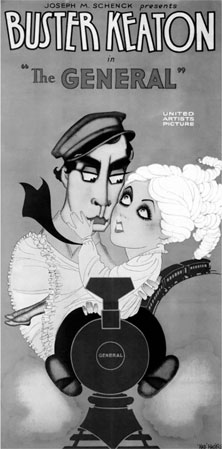
America, the Civil War lasted from 1861 to 1865. At the heart of the conflict was the Southern institution of slavery, which was brought to an end by the Norths victory. Over 600,000 soldiers were killed, a number
approximately equal to the total American fatalities in the Revolution, the War of 1812, the Spanish-American War, World War I, World War II, and the Korean War. A similar rate, about 2 percent [of the total US population at the time], today would mean six million fatalities.
Next page
